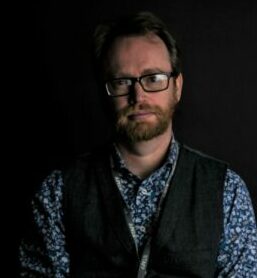 Dr Cary Edwards lectured in Film and Media for eighteen years before deciding to make the switch to become a teacher of teachers, delivering on the University of Derby’s PGCE and Certificate in Education Programmes.
Dr Cary Edwards lectured in Film and Media for eighteen years before deciding to make the switch to become a teacher of teachers, delivering on the University of Derby’s PGCE and Certificate in Education Programmes.
Once described, in the Los Angeles Review of Books, as part of a ‘new wave of scholars [who] takes aim at auteurism’ whose writing makes you ‘question the binaries that separate New and Old Hollywood’, Cary’s main research interests are in film-violence, spectatorship and audiences.
In 2022 Bloomsbury Academic published The Vigilante Thriller: Violence, Spectatorship and Identification in American Cinema, 1970-76, which is now available in hardback, paperback and digital editions. The chapter that elicited positive notices in the Los Angeles Review of Books was ‘Formal Radicalism vs. Radical Representation in The French Connection (William Friedkin, 1971) and Dirty Harry (Don Siegel, 1971)’ published in New Wave, New Hollywood: Reassessment, Recovery and Legacy (edited by Nathan Abrams and Gregg Frame and published by Bloomsbury Academic). He has also written a defence and analysis of Timothy Dalton’s two James Bond films in the monograph He Disagreed with Something that Ate Him: Reading The Living Daylights and Licence to Kill which is available from Amazon.
Cary has spoken at several conferences, most recently the Paul Verhoeven @85 conference at Bangor University (September 2023) delivering a paper entitled ‘Bodies of Steel, Bodies of Mush: The Hard Body and Paul Verhoeven’s Dystopian Science Fiction Action Films’. Other examples of his work have appeared in Revenant: Critical and Creative Studies in the Supernatural, Horror Homeroom and Bright Lights Film.
Cary achieved his PhD in 2018 from the School of Film and Media at the University of Lincoln. He had previously earned an MA Film Studies from the University of East Anglia, a Post Graduate Certificate in Education from the University of Huddersfield, and a BA in English from Bangor University.
